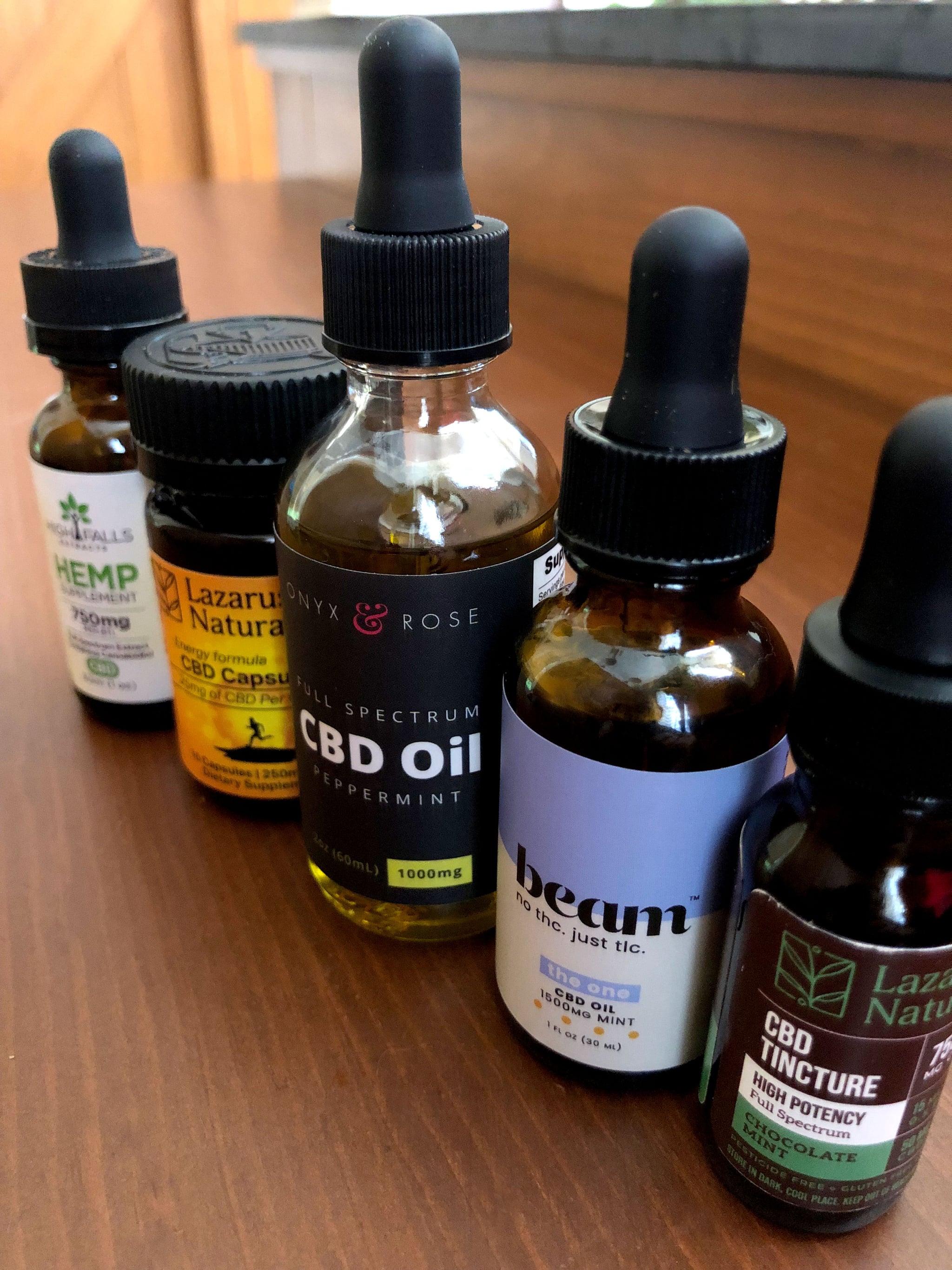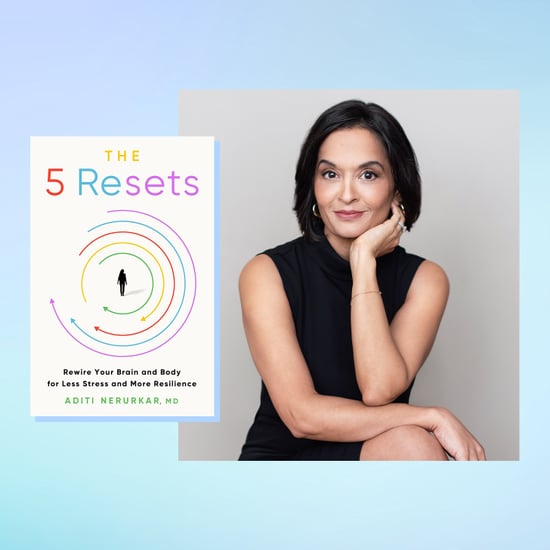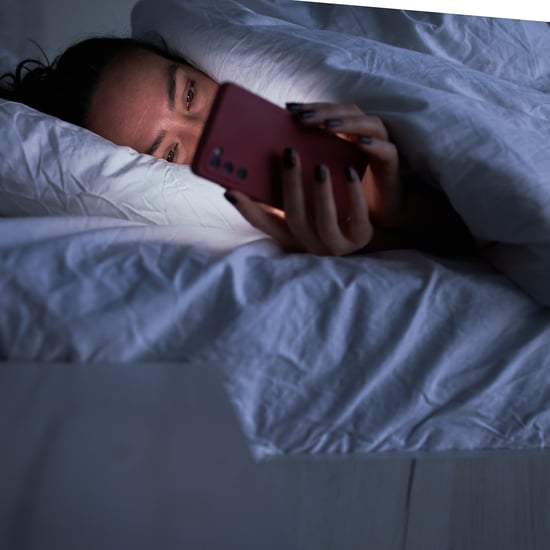Is CBD Addictive?
Before Popping a Gummy or Squirting Some Oil, Experts Answer — Is CBD Addictive?

CBD is having a big moment right now. From tinctures, to gummies, to water, to honey to chocolate — CBD is in everything! People take CBD to relieve anxiety symptoms, to help with sleep, to treat epilepsy, and to manage pain or muscle soreness, and these are the ailments and issues its marketed for. But is CBD addictive?
What is CBD?
First, let's discuss what we're dealing with. Cannabis (marijuana) contains hundreds of different cannabinoid compounds, two of which are THC (tetrahydrocannabinol) and CBD (cannabidiol). Unlike THC, CBD doesn't have psychoactive properties, which means it won't get you high.
Addiction expert and psychiatrist Indra Cidambi, MD, explained that CBD can help with many conditions such as chronic pain, appetite, sleep, anxiety, and inflammation. She said, "Since CBD is derived from the cannabis plant, many people associate it with marijuana and assume it has the potential for addiction."
Is CBD Addictive?
Dr. Cidambi explained that cannabinoid compounds like THC and CBD are chemicals that insert themselves into special receptors in the body's cells and tissues. These receptors called CB1 and CB2 make up part of a vast network of neurotransmitters known as the endocannabinoid system (ECS), which helps regulate bodily functions including temperature, appetite and digestion, sleep, memory, mood, pain, and pleasure.
"Most cannabinoids, including THC found in marijuana affect the CB1 (brain) and CB2 (immune system) receptors, producing a high. Although CBD is one of the cannabinoids found in marijuana, it does not deliver a high and is not addictive because it does not affect the CB1 or CB2 receptors," explained Dr. Cidambi. Min An, a licenced pharmacist, added that "our body naturally produces CBD in the ECS to maintain balance when we encounter stress." In short, An said, "we can't become addicted to our own body's naturally produced compound."
Actually, on the contrary, several studies have reported that CBD has anti-addictive properties, which may be effective in helping individuals wean off drugs like marijuana, alcohol, cocaine, or heroin, added An. "CBD doesn't cause dependence or tolerance and is a great holistic alternative for those trying to stay away from real addictions," she explained.
To make you feel even better, The World Health Organisation's (WHO) Expert Committee on Drug Dependence (ECDD) recently concluded that CBD is non-addictive, has no withdrawal symptoms, and is generally well tolerated with a good safety profile. In fact, they determined that it was time to remove CBD from international drug control and that it exhibits no potential for abuse or dependence.
A Word of Caution on CBD
Ben Thrower, MD, and medical director at Andrew C. Carlos MS Institute, explained that in his professional experience, he hasn't found CBD to be addictive. Many of his patients have experienced a calming effect and improved sleep when using CBD. "I suppose one could become mildly psychologically dependent on those effects," he said, but dependence is a lot different than having a physical addiction, which we've already established is not possible with CBD.
It's always important to monitor the intake of any substance and its impact on the mind and body to consider the overall well-being of an individual. Your goal should be balance and wellness, so if using CBD is positively affecting your life, that's a good thing. If it's not, then you may want to think about monitoring your intake.
How to Buy CBD
Not all CBD is created equal. Family physician Philip Blair, MD, said to make sure "the CBD you're getting is safe and effective." He said to look for quality products from reputable brands that have been U.S. Hemp Authority Certified, meaning they've gone through additional rigorous testing procedures.
Also, note that CBD is sometimes labeled as hemp oil, which contains CBD. There is also hemp seed oil derived from the hemp plant, which is a great source of healthy fats but contains no CBD. Just read the label to ensure what you're paying for is actual CBD. Hemp seed oil will be listed as cannabis sativa seed oil, while CBD will be listed as as cannabidiol, full-spectrum hemp, hemp oil, PCR (phytocannabinoid rich) or PCR hemp extracts, according to Healthline.







